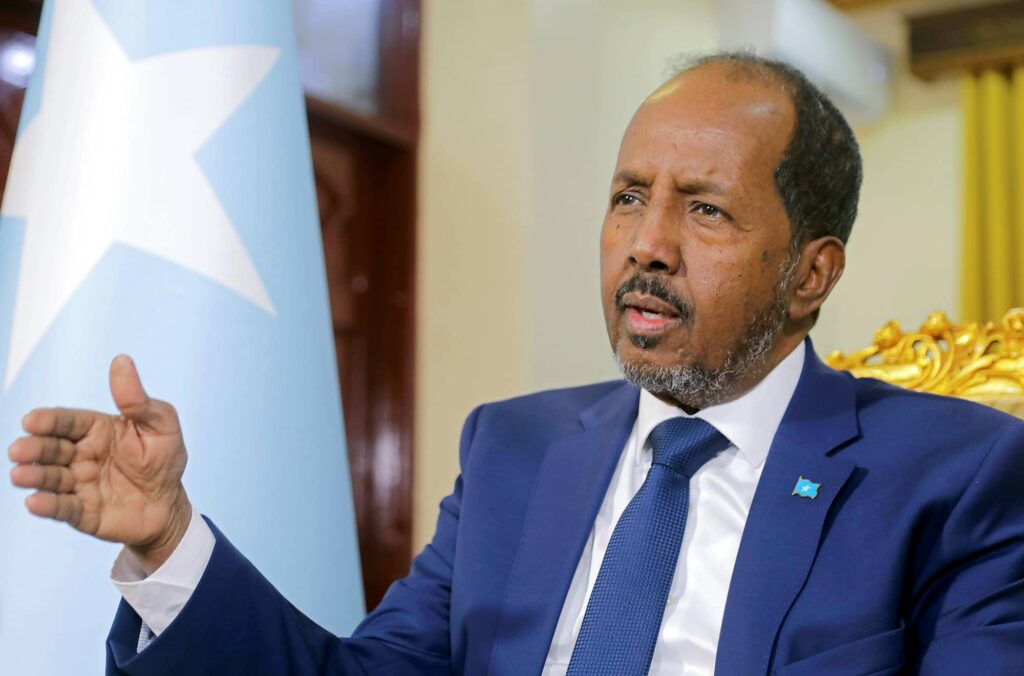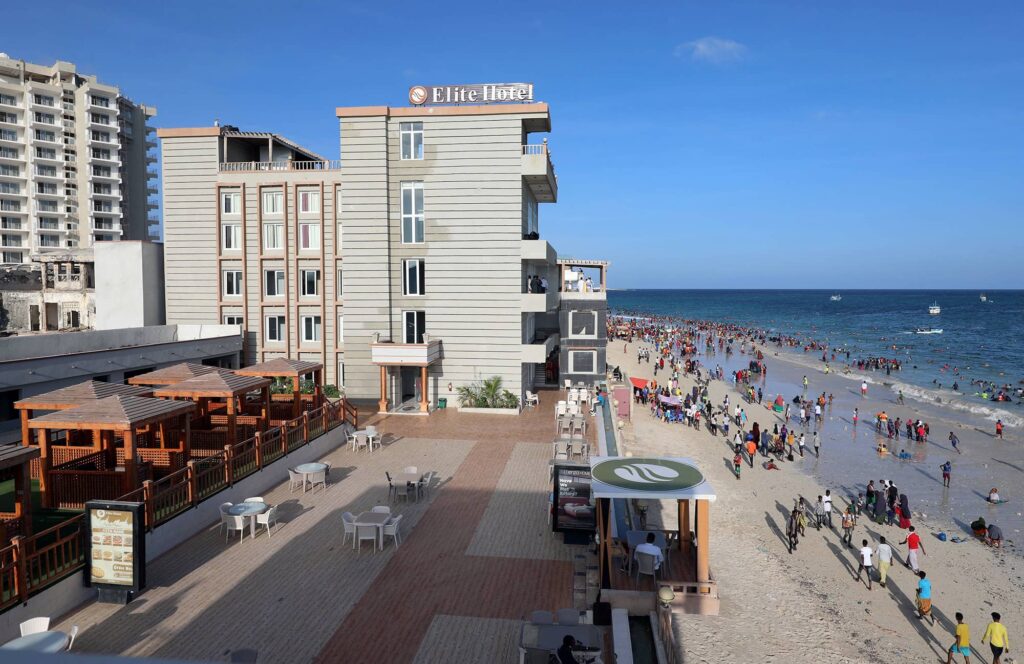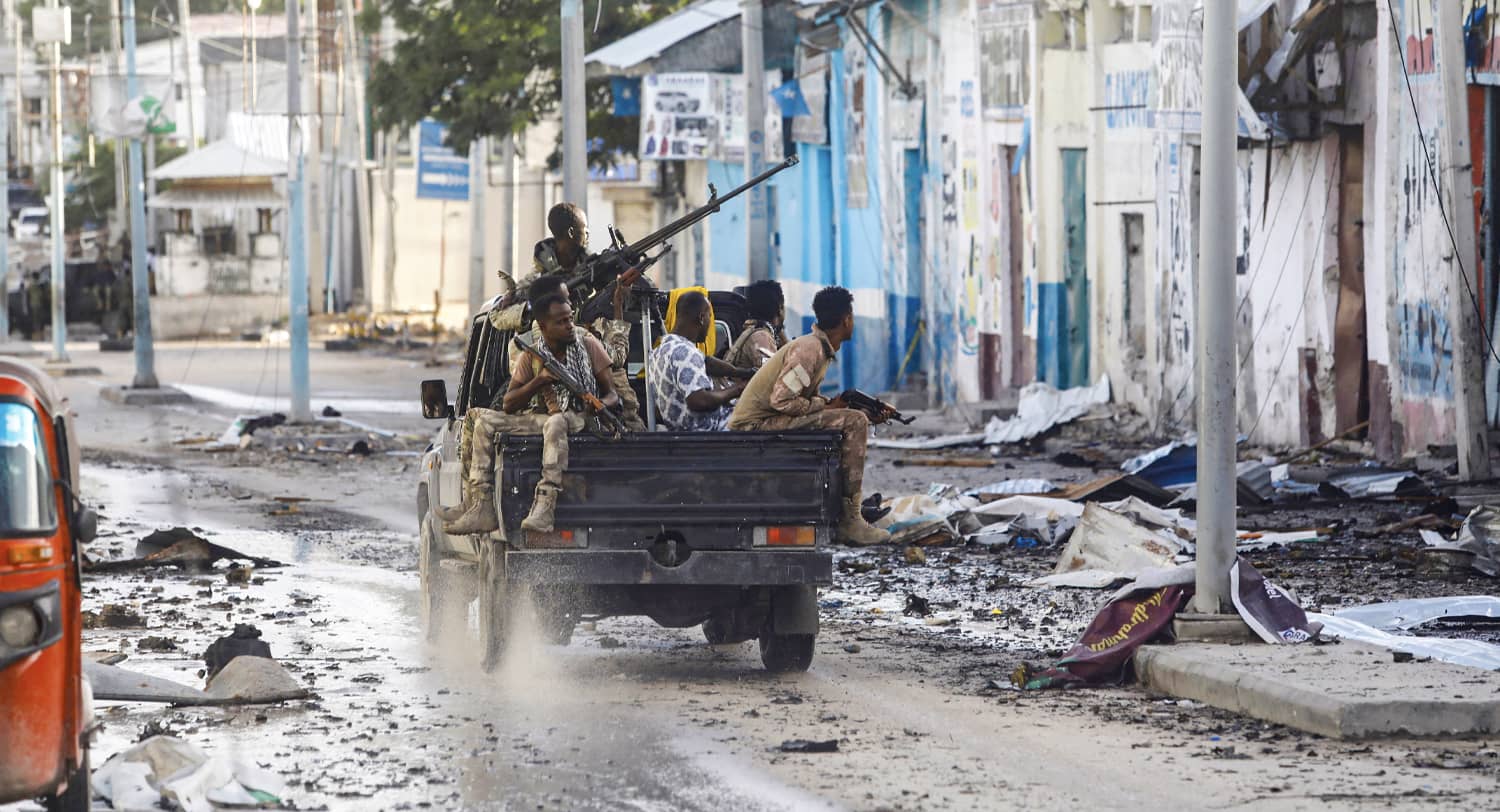In January 2018, I traveled via armored convoy over 20 kilometers of bad roads from a regional airport to the Hirshabelle provincial state capital of Jowar in central Somalia. Protected by Burundian soldiers of the African Union peacekeeping force, we sped through countryside and villages controlled by the al-Shabaab terror group. In Jowar, the UN delegation witnessed the signing of an agreement on the rule of law system in Somalia, concluded by state and federal leaders.
At the time, I was based in Mogadishu, leading the Rule of Law and Security Institutions Group of the UN mission in Somalia. Functioning rule of law is critical to any state coming out of conflict. But it is very difficult to establish in a country still undergoing an armed conflict with a terrorist group, like Somalia is with al-Shabaab.
The Spread of Islamist Terrorist Groups
Al-Shabaab is only estimated to have perhaps 4 to 5000 fighters, but it thrives on rifts and conflicts in society, using local sub-clan divisions to play Somalis off against each other. And it sometimes uses elders and clan leaders at the village level to impose its rule, threatening them into obedience and forcing them to supply the group with support and people. It extorts ”taxes” from businesses and individuals and kidnaps children and forces them to become fighters. As long as al-Shabaab controls land in Somalia, peace and development will remain an uphill battle, with constant set-backs.
The growing threat from militant jihadist groups is the game changer in Africa over the past two decades. We may not have realized the full extent of this threat as it grew, but in 2022, the Africa-based think tank International Security Studies warned the UN Security Council that Africa could become a future base of an Islamic State caliphate. Jihadist groups were active in 20 African countries and used another 20 for logistical support and fund raising.
We should have seen the danger much earlier. Others did. In the 1990s, during my first posting to the Horn of Africa, Ethiopian officials shared their concern that Salafist teachers were changing the nature of Islam in the Horn and causing rifts among religious groups. Already in the early 1990s, al-Itihad al-Islamiyya was a threat in Somalia and Ethiopia.
Sweden had plenty of warning. For years, some Swedish citizens with immigrant backgrounds from the Middle East were involved in supporting Islamist groups in Somalia. The Kenyan security services arrested a number of Swedes in 2006, supposedly on ”vacation” in Mogadishu, when the ”Islamic Courts Union” in Somalia was defeated. A few months later they were released and returned to Sweden. Some years later a couple of them were captured again, this time by Pakistan security forces when trying to join Taliban forces in Afghanistan. Finally, one of them was later caught trying to carry out a terrorist attack on a Danish newspaper in Copenhagen. We should have seen this coming and we should have taken appropriate law enforcement action much earlier.
Elsewhere in Africa, the advance of militant jihadist groups has negatively affected a number of countries. Some have been destabilized and overtaken by terrorists. Even when that is not the case, social, economic and democratic progress have been undermined and development processes have been replaced by ”failed states.” A sad example is Mali, a country that for several decades was held up as a good example of democratic leadership and positive social and economic development. A decade ago, jihadists attacking from the north changed all that.
Destabilization tends to spread. When Mali was attacked from the north, and the jihadists advanced towards the capital, there was growing concern that this would affect other countries in the region. Liberia and Sierra Leone were obvious targets, being fragile and vulnerable and in the process of rebuilding after many years of civil war. In the end, the jihadists were stopped before they got that far, thanks to quick international intervention led by France. But while Liberia and Sierra Leone managed to avoid jihadist attacks, other countries in the Sahel have not been so lucky. The Lake Chad Basin contains a growing number of countries where terrorists have made inroads and now reign with terror, undermining legitimate regimes.
If Somalia teaches us anything, it is the danger posed by an entrenched terrorist group. It is urgent to stop jihadist terrorist groups, wherever they appear, to block their advance and to roll back their control. In Somalia, they have been able to infiltrate and permeate society and its institutions, use banks and companies to launder money, control trade and harbors, and to prevent peace and statebuilding efforts. The threat posed to the greater Horn of Africa is real. Attacks on Kenyan shopping malls, hotels and universities have instilled fear way beyond the Somali borders.

Rebuilding Somalia
Rebuilding Somalia entails rebuilding trust among the various clans and sub-clans that form the national fabric. Politics, thus, is at the core of rebuilding security institutions including the police and the courts. Interestingly, Somalis chose federalism as their governance system to accommodate different clans and sub-clans. Federalism requires a political dialogue and decisions for who will do what at what level. In Somalia this means that the states, and the state and regional presidents, are as important as the federal leaders.
The 2018 agreement on the legal system had been hammered out after lengthy discussions among justice officials from all the provincial states and the federal ministry. It recognized the existence of traditional legal practice and the limitations of federal government jurisdiction. The states have legitimate roles in policing and courts, incorporating local and traditional justice. For that reason, signing the agreement in a state capital was of great symbolic value. It showed that Somali politics were not just Mogadishu-centered. It also signaled to the terrorists that change was happening, that Somalis were united behind it.
Al-Shabaab responds with terrorism. One impressive Somali contact in the federal Justice ministry, responsible for security-related issues, was at his desk when al-Shabaab attacked the ministry, moving from office to office, from floor to floor, killing everybody they came across. He managed to escape through a window, climbing down onto a lower building, jumping to the ground and running to safety.
This may be about to change. During the last year and a half, Somali leaders under President Hassan Sheikh Mohamud, an experienced politician, are fighting back against al-Shabaab. One leader is forming a joint security force from the disparate military, police and clan militias. Some exceptional women operate often in the background in this male-dominated polity, including in the security institutions. Together they have improving the institutions of government, ready to be used when the leaders decide to act.

The offensive started in earnest in the early fall of 2022 and has so far been successful in pushing back the terrorist group. If this offensive continues, it could, in the end, break the back of al-Shabaab, forcing it to abandon areas of control and possibly eliminating this militant group for good.
Defeating al Shabaab requires much more than military force. Somalia has taken important steps in terms of financial and institutional measures to prevent extortion and money laundering. Much remains to be done in the areas of social and economic needs, security and rule of law, and good governance and political reconciliation. Agreement on a constitution is still a work in progress. Small tentative steps have been taken towards democratic governance, with one person, one vote at the local level being carried out only in Puntland in the north. A determined state president there played a key role and Puntland could move on to implement state-wide elections, a first in Somalia outside of relatively peaceful Somaliland.
For several decades, we have been used to looking at Somalia as a failed state and a terrorist hot spot. Rebuilding a failed state is a difficult, expensive and long-term effort requiring international engagement. To manage reforms and rebuild Somalia, al-Shabaab must be defeated and rendered harmless. It is a necessary but not sufficient prerequisite for peace and development. The key is ultimately a matter of leadership and leaders’ ability to reconcile, resolve conflicts through dialogue and find a common way forward.
During my years in Somalia, I used to visit the busy Mogadishu Fish Market. Fishermen would bring in the morning’s catch and then the buying and selling would start in earnest. I would walk over to the Lido Beach and see young Somalis swimming and playing in the water, sitting on the beach, while older Somalis were having a coffee in the cafes. These brief visits would give me hope for Somalia’s future.
But these visits were only possible with heavy security. If peace efforts continue, if al Shabaab is defeated and the state and security is reestablished, it may be possible to enjoy a coffee at Lido Beach without a squad of heavily armed guards and to stroll the Fish Market without a bulletproof vest. Maybe in a few years time.

